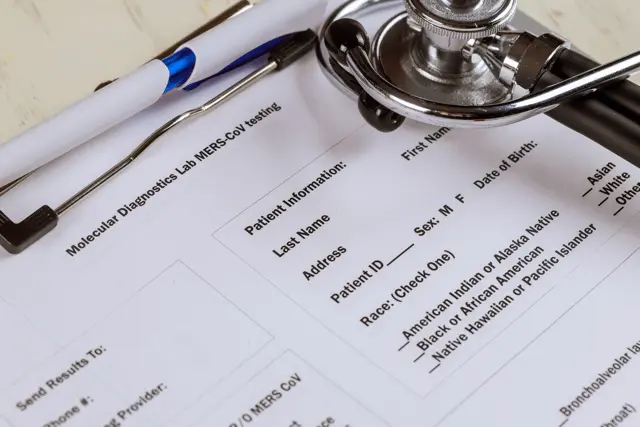Table of Contents
The integration of Artificial Intelligence (AI) into various sectors has been a revolutionary step towards greater efficiency and innovation. In the realm of healthcare, AI plays a pivotal role in reinforcing patient safety protocols, particularly within the Virtual Learning Management Systems (VLMS) utilized by healthcare providers for training and patient care. This article delves into how AI enhances patient safety measures and the significant impact of smart technology on healthcare delivery.
AI Integration in Patient Care
AI has swiftly become an indispensable tool in shaping the future of patient care. By integrating AI into Virtual Learning Management Systems, healthcare providers can simulate real-world scenarios, allowing practitioners to hone their skills without risking patient safety. AI algorithms are capable of presenting complex patient cases, offering providers an opportunity to improve their diagnostic accuracy and treatment plans. Moreover, these systems can identify patterns in patient information, aiding in early disease detection and preventing medical errors before they occur.
The implementation of AI in patient care also extends to predictive analytics. By analyzing vast amounts of data, AI can forecast potential health risks and suggest preventive measures. This predictive capability is vital for patient safety, as it equips healthcare professionals with the knowledge to intervene proactively, rather than reactively. As patient data accumulates, AI continues to refine its predictive models, ensuring that healthcare providers are always equipped with the most current insights to safeguard patient health.
Another significant aspect of AI in patient care is its capacity to personalize medical treatments. AI systems can sift through large datasets, including genetics, lifestyle, and environmental factors, to tailor treatments to individual patients. This personalization reduces the risk of adverse drug reactions and enhances the effectiveness of care, thus improving patient safety. By understanding the unique characteristics of each patient, AI provides healthcare providers with a powerful tool to deliver safer, more precise, and patient-centric care.
Enhancing Safety with Smart Tech
Smart technology powered by AI is revolutionizing the way healthcare facilities manage patient safety. One such innovation is the deployment of smart sensors and wearable devices that continuously monitor patients’ vital signs. These devices can alert medical staff to any deviations from normal parameters, ensuring quick response to potential health threats. Additionally, AI-powered analytics can assess these data streams to predict and prevent critical events, such as falls or heart attacks, thereby enhancing overall patient safety.
In the context of VLMS, AI contributes to the cultivation of a safer healthcare environment through the automation of routine tasks. By automating administrative duties and patient monitoring, AI allows healthcare professionals to focus more on direct patient care. This not only alleviates the burden on healthcare staff but also minimizes the likelihood of human error, which is one of the leading causes of patient safety incidents. The resulting efficiency brought about by smart tech fosters a more attentive and safer healthcare setting.
Furthermore, AI enhances patient safety protocols by facilitating more effective communication among healthcare teams. Through sophisticated algorithms, AI can organize and prioritize patient information, ensuring that critical data is accessible when and where it is needed. Such streamlined communication prevents mishaps that often result from miscommunication or delayed information transfer. By ensuring all team members are on the same page, AI significantly reduces the margin for error and enhances the collaborative effort to maintain patient safety.
In conclusion, AI’s role in enhancing VLMS healthcare’s patient safety protocols is both transformative and indispensable. From improving the precision of patient care through predictive analytics and personalization to reinforcing safety with smart monitoring technology and efficient communication, AI is at the forefront of advancing patient safety measures. As healthcare continues to evolve, the integration of AI will undoubtedly become more sophisticated, promising not only better patient outcomes but also a more resilient healthcare system that prioritizes the safety and well-being of its patients.
Q: How does AI contribute to enhancing patient safety protocols at VLMS Healthcare, and what specific areas does it address in healthcare settings?
- A: AI plays a crucial role in patient safety at VLMS Healthcare by monitoring patient data in real-time, identifying potential risks, and providing timely alerts. It addresses areas such as medication errors, infection control, and early detection of deteriorating patient conditions.
Q: Can you provide examples of how AI-driven technologies have improved patient safety outcomes within healthcare institutions working with VLMS?
- A: Certainly, AI-driven technologies at VLMS Healthcare have shown success in reducing medication errors, predicting patient deterioration, and enhancing infection control measures. These examples underscore the positive impact of AI on patient safety and overall healthcare quality.
Q: How does VLMS Healthcare ensure the seamless integration of AI technologies into existing patient safety protocols, considering the diverse healthcare environments they operate in?
- A: VLMS Healthcare follows a comprehensive integration strategy that involves collaboration with healthcare professionals, thorough training programs, and customizable AI solutions adaptable to various healthcare settings. This approach ensures a smooth transition and effective utilization of AI for patient safety.
Q: What role does predictive analytics play in VLMS Healthcare’s patient safety protocols, and how does it assist healthcare providers in proactive decision-making?
- A: Predictive analytics in VLMS Healthcare’s patient safety protocols use historical data and AI algorithms to forecast potential safety issues. This proactive approach empowers healthcare providers to intervene early, preventing adverse events and improving overall patient outcomes.
Q: Concerns about data privacy and security are prevalent in healthcare. How does VLMS Healthcare address these concerns when implementing AI solutions for patient safety?
- A: VLMS Healthcare prioritizes data privacy and security by implementing robust encryption, access controls, and compliance with healthcare data protection regulations. Regular audits, transparent communication, and adherence to industry standards contribute to a secure AI implementation that safeguards patient information.


